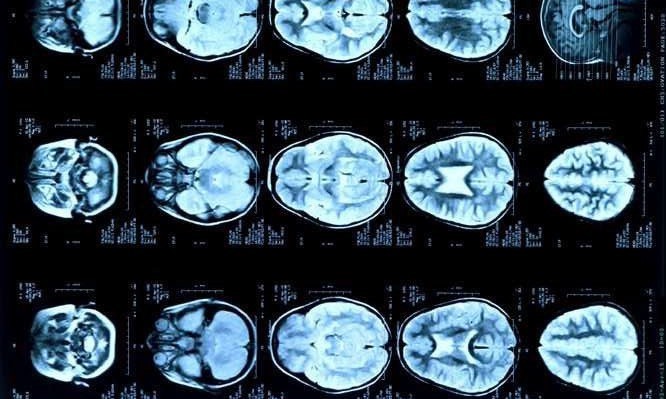By Damya Wijesekera
Imagine you are standing in the middle of a bustling city.
 Behind you, acres of farmland nestle passively together at the sides of a rushing highway, working to grow the crops and resources needed to feed the citizens of the city. Wind farms standing on the highest hills power the city with the renewable force of nature.
Behind you, acres of farmland nestle passively together at the sides of a rushing highway, working to grow the crops and resources needed to feed the citizens of the city. Wind farms standing on the highest hills power the city with the renewable force of nature.
In front of you, workplaces rise in high, narrow buildings, crisscrossing against the slender expanse of sky and clouds behind them.
To your left, even bulkier buildings hidden amongst lavish gardens and parks house the families of the city in comfortable, spacious apartments. Local wildlife spreads from building to building, renewing the air’s healthy supply of oxygen.
Above you, the clean, unblemished air seems to sizzle with the electric speed of an overhead train as it sails towards its next stop, running from building to building to deliver its passengers to their destinations and to connect the different parts of the city; the trademark of a world ruled by public transport.
Below you is a gargantuan underground shopping village; a land of lights and life which returns the city’s produce to its citizens.
This is what I want for 2030.
Today, a city like this exists only in my imagination. But by 2030, I am sure that technology and engineering can create a utopia like this one, in which sustainability, practicality and beauty can coexist. STEM already has gifted us with incredible creations and revolutionary solutions to worldwide problems; such as the telephone, the light bulb and the internet. It is only natural that it will play a massive role in our collective future.
Already, examples of the power of science and technology can be found shaping cities around the world:
 In Germany, the limited amount of space in cities has lead to monorail-style trains, suspended 30 feet above the ground to a single rail. The trains, known as Schwebebahn, are barely affected by the country’s snowy climate and run at up to 60kmph. Each train consists of 2 carriages, supporting up to 200 people, transporting a total 82000 people each day and connecting 20 stations in the area. The Schwebebahn is located in Wuppertal, crossing the Wupper river. It is a technological feat that could massively benefit the oppressing demands of public transport users in many countries and cities.
In Germany, the limited amount of space in cities has lead to monorail-style trains, suspended 30 feet above the ground to a single rail. The trains, known as Schwebebahn, are barely affected by the country’s snowy climate and run at up to 60kmph. Each train consists of 2 carriages, supporting up to 200 people, transporting a total 82000 people each day and connecting 20 stations in the area. The Schwebebahn is located in Wuppertal, crossing the Wupper river. It is a technological feat that could massively benefit the oppressing demands of public transport users in many countries and cities.
In Singapore, 18 world-famous ‘Supertrees’, spanning 25-50m in height, act as both vertical gardens and sources of renewable energy. The trees boast numerous varieties of tropical flowers and ferns and provide shade and shelter from the sun. The Supertrees also generate solar power, ventilate nearby conservatories and collect massive amounts of rainwater. Furthermore, they can produce electrical energy through a technological system called a solar photovoltaic system. With multiple benefits across such a wide range of areas, these Supertrees are the emblem of an ideal future world. The use of Supertrees across the world could be instrumental in shaping our combat against global warming and climate change.
 In Austria, the capital city Vienna owes its title to its initiative of electric buses. As well as its 75km long metro system and the world’s fifth largest tram system, Vienna houses a network of electric buses. The twelve buses are 7.78m long, can carry up to 46 passengers, can travel up to 150km at a time and have full heating and cooling systems. To charge, the buses stop at a depot during the night and at existing tram stops during the day. The electricity they use comes from a variety of renewable sources such including water, wind, gas and solar power. Despite costing twice as much as the ordinary buses in Vienna’s massive bus network, the electric buses are emission free and far quieter than ordinary buses. This system is also evident in London, where diesel-electric buses reduce 40% of carbon emissions. Technological advancements such as these help not only us – the people – but also our environment – the world that we live in and share.
In Austria, the capital city Vienna owes its title to its initiative of electric buses. As well as its 75km long metro system and the world’s fifth largest tram system, Vienna houses a network of electric buses. The twelve buses are 7.78m long, can carry up to 46 passengers, can travel up to 150km at a time and have full heating and cooling systems. To charge, the buses stop at a depot during the night and at existing tram stops during the day. The electricity they use comes from a variety of renewable sources such including water, wind, gas and solar power. Despite costing twice as much as the ordinary buses in Vienna’s massive bus network, the electric buses are emission free and far quieter than ordinary buses. This system is also evident in London, where diesel-electric buses reduce 40% of carbon emissions. Technological advancements such as these help not only us – the people – but also our environment – the world that we live in and share.
 Change is necessary, and the best way to go is forwards. Technology, with the assistance of good governments and geographically abundant landscapes, is the ultimate catalyst in developing a perfect world.
Change is necessary, and the best way to go is forwards. Technology, with the assistance of good governments and geographically abundant landscapes, is the ultimate catalyst in developing a perfect world.
By 2030, I hope that technology and engineering can combine all their amazing feats to create a city like this, not just in my imagination, but in reality. And I hope that I will be one of those at the forefront of this technological revolution, as an engineer who can reinvent the path forward for a sustainable future.
I am looking forward to a future, in which everyone can live in a community which utilises the best of technology, to guarantee the safety and happiness of its residents, and respect and preserve the natural wonders of the planet.
Aren’t you?






